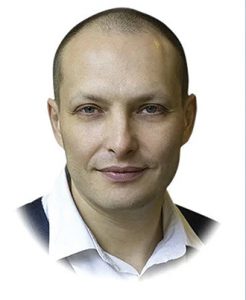Mikhail Gorbachev failed at everything he tried as the Soviet Union’s last leader. The state he led could only change the world for the better by failing — and it did. But, alas, not for long.
I will never forget the moment in August 1991 when — at 19 years old, slightly stoned and very much in love — I watched the statue of KGB founder Felix Dzerzhinsky tumble in Moscow. This was on Gorbachev’s watch. Many of my German neighbors know exactly where they were when the Berlin Wall fell in November 1989 — also on Gorbachev’s watch. But I have never felt any kind of debt to the fumbling last emperor of the doomed Soviet empire. It was we — we Russians and Germans and Lithuanians and Ukrainians and Poles and Georgians and many others — who created those inspiring moments out of our utter misery. Our generation across much of Europe and Asia were lucky he lacked Vladimir Putin’s evil efficiency. I still believe we would have prevailed even if he did.
However, the fact that we couldn’t hold on to what we won is our responsibility, too. We have wasted Gorbachev’s legacy of beneficial failure. This is going to be somewhat of a harrowing obituary. Gorbachev’s entire record atop the Soviet hierarchy was that of a flailing, clueless loser, always one step behind the times. He started out as Communist Party leader in 1985 with a campaign to eradicate drunkenness, which created endless lines for vodka.
Gorbachev launched an economic “acceleration†drive that sank like a lead balloon because it stopped well short of embracing capitalism. He thought he was bringing Communism closer to the people rather than dismantling it. In a memoir, Gorbachev quoted his own notes from 1985: “The current propaganda of Marxism is boring, young people are losing interest… If we want new policies to gain support, we need to restore faith in Socialist ideals.â€
Shortages were atrocious. I remember a year without toilet paper in Moscow, the capital. While growing up in Siberia, my wife doesn’t recall using anything but smeary newsprint for hygiene. Store shelves emptied of everything but three-liter jars of sweetened birch sap.
Nothing worked. Amid the economic mismanagement, the Chernobyl nuclear power plant blew up in 1986; and Gorbachev, the originator of glasnost — that is, his policy of “openness†— waited 18 days to address the nation about it, allowing hundreds of thousands of people to be exposed to the fallout.
Gorbachev permitted more media freedom. As a result, the whole country was soon reading and hearing on TV about previous crimes of a regime that refused to prosecute the perpetrators, many of whom were still alive as honored retirees.
When people in the former Soviet republics began rebelling and demanding independence, he — to put it generously — did little to prevent bloody crackdowns, even if there’s no clear evidence that he ordered them himself. As early as 1986, nationalist protests in Almaty, Kazakhstan, were put down with a massive show of force. Two of the protesters received death sentences.
In April, 1991, the Soviet military killed 21 protesters and wounded hundreds more in the Georgian capital, Tbilisi. Jumber Patiashvili, who headed the Communist Party in Georgia at the time, would later accuse Gorbachev of sending in the troops.
People were killed as they protested in Dushanbe, Baku and Riga. In January 2022, relatives of four of the 14 people killed by Soviet paratroopers during the January 1991 storming of the TV tower in Vilnius sued Gorbachev for damages in a Lithuania court. Again, there’s no direct evidence that he personally ordered the military intervention, and he denied it. But he is on record demanding that the Soviet-occupied Baltic nation give up its independence drive; and he had ordered an economic blockade of Lithuania that preceded the military action.
In 1990, Gorbachev, apparently alarmed by what he had unleashed, began rolling back the media liberalization. He appointed hardliners to key positions, from TV chief to interior minister. Many of these would depose him in the failed August 1991 coup. Still upon being reinstated by his arch-enemy, Boris Yeltsin, Gorbachev would fail to hold on to power. He finally witnessed the Soviet Union’s demise.
He didn’t just fail as an autocrat, squandering the near-unlimited power handed to him as party boss; he also failed as a politician, despite his penchant for unscripted speeches and mixing with people in public squares. When he tried to run for president of Russia in 1996 — in an election that was free but not exactly fair and that returned Yeltsin to the Kremlin for a second term — he won 0.51% of the vote.
—Bloomberg
Leonid Bershidsky formerly Bloomberg Opinion’s Europe columnist, is a member of the Bloomberg News Automation Team. He recently published Russian translations of George Orwell’s “1984†and Franz Kafka’s “The Trial.â€
 The Gulf Time Newspaper One of the finest business newspapers in the UAE brought to you by our professional writers and editors.
The Gulf Time Newspaper One of the finest business newspapers in the UAE brought to you by our professional writers and editors.

